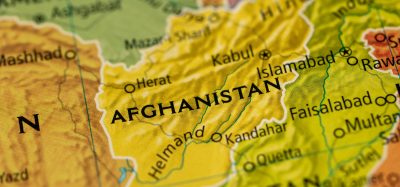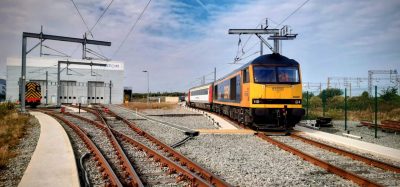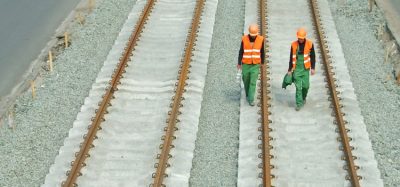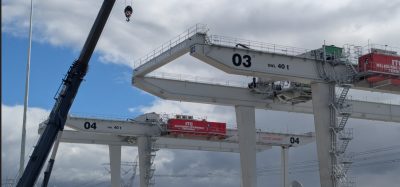Vehicle maintenance at Railion
Posted: 3 April 2006 | | No comments yet
Efficient and effective vehicle maintenance is a key competitive factor for any railway undertaking operating freight rail services. To this end maintenance must be consistently geared towards operations. Flexibility in respect of time and location, quality and ideal cost structures are success factors that bring about the most efficient use of vehicles. Thanks to its long-standing experience, area-wide service network and high capacity levels, Railion is in a position to offer these success factors to all railway undertakings operating rail freight services.
Efficient and effective vehicle maintenance is a key competitive factor for any railway undertaking operating freight rail services. To this end maintenance must be consistently geared towards operations. Flexibility in respect of time and location, quality and ideal cost structures are success factors that bring about the most efficient use of vehicles. Thanks to its long-standing experience, area-wide service network and high capacity levels, Railion is in a position to offer these success factors to all railway undertakings operating rail freight services.
Efficient and effective vehicle maintenance is a key competitive factor for any railway undertaking operating freight rail services. To this end maintenance must be consistently geared towards operations. Flexibility in respect of time and location, quality and ideal cost structures are success factors that bring about the most efficient use of vehicles. Thanks to its long-standing experience, area-wide service network and high capacity levels, Railion is in a position to offer these success factors to all railway undertakings operating rail freight services.
Deutsche Bahn AG’s freight rail services are incorporated in the Railion Unit in the DB Logistics Division. In addition to Railion Germany, Railion boasts undertakings in Denmark, the Netherlands and Italy. With some 23,000 employees, turnover approaching €3.3 billion and a transport capacity in excess of 77 million ton-kilometres (tkm), Railion is Europe’s largest freight rail undertaking.
Together with the comprehensive vehicle fleet (approx. 2,600 locomotives and approx. 100,000 own freight wagons), Railion is also responsible for the maintenance of these vehicles.
The organisation of Railion Deutschland AG’s car shops is allocated to the management department Production 1, Vehicle Division.
Strategic objective of Railion Maintenance
The development of maintenance in rail freight traffic is accompanied by the company’s strategic alignment, and is influenced by two key factors:
- increasing internationalisation in rail freight traffic
- optimisation pressure in freight traffic by intra-modal competition
The expansion of the European Union has further pushed the ongoing internationalisation of freight rail services that has been underway for years. On the one hand ever more cross-border trains are using the German railway system. On the other, ever more ‘German’ trains are underway in neighbouring countries. Railion has reacted to this development and in the last few years has acquired locomotives that are equipped for services abroad. All railway undertakings have a major interest in adjusting the necessary maintenance measures in line with the demands placed on transport operations.
The intermodal and intramodal competition in freight traffic subjects the sector’s railway undertakings to strong optimisation pressure. Maintenance is a crucial cost factor here and offers three key starting points in respect of optimisation:
- Reducing maintenance expenses per se (manufacturing costs and material) while maintaining a quality level
- Greater capacity utilisation of vehicles by reducing immobilisation periods/greater vehicle availability
- Reducing supply input to the maintenance location
In respect of maintenance, Railion consistently gears its operations towards the customers’ requirements and transport wishes. In this respect equal importance is attached to time (maintenance during immobilisation periods) and location factors (suitable selection of locations and mobile maintenance teams) to reflect customers’ demands.
The objective consists of increasing vehicle availability by simultaneously giving consideration to maintenance costs.
Furthermore, the maintenance structures and processes must be geared towards efficiency targets and specific maintenance costs without reducing the quality level.
Organisational and regional structure
Throughout Germany, Railion has car shops at 25 locations (plus several field offices). These are usually located in key marshalling yards or transhipment stations and cover all the important national and international freight rail services in Germany. The car shops are divided into six maintenance regions. These maintenance regions account for the operative management of some 2,500 employees largely at their own responsibility. The head office is home to a 16-strong core team, which is largely entrusted with strategic tasks:
- Medium-term planning and consolidating the annual planning
- Monitoring and controlling by way of a key figure system (balanced scorecard)
- Supra-regional service and capacity control of freight wagon maintenance
- Materials management co-ordination
- Investment planning and infrastructure projects
Thanks to the central and uniform management, customers at Railion’s car shops can look forward to reliable vehicle maintenance conditions that can be planned throughout Germany, as well as uniform quality standards.
Shifting management tasks to the regional maintenance locations has the advantage of a flat hierarchy level with short decision lines. These form the basis for flexibility and customer orientation. By way of the operative management in the region, the car shops can react to the individual requirements of their customers in the local railway undertakings.
Procedures and processes
Railion’s maintenance operations are largely supported by EDP systems, predominantly by SAP R/3. Normally the principals of the car shops directly approach the maintenance regions that will accept, confirm and process the orders, including settlement.
Most work in the car shops emanates from Railion itself. Interfaces are set up to the EDP systems of the internal principals, in particular linking the order scheduling and monitoring systems, such that the entire maintenance programme can largely be processed automatically, while manual intervention is minimised. This enables the company to ensure, and furnish proof, at all times that operations are optimised with a view to efficiency and are of a high quality. The principal goal is a consistent alignment towards operations and the transport operators’ requirements. The annual planning takes account of the car shops’ personnel capacities in relation to the expected amount of maintenance work.
Principals and maintenance locations plan the material requirements while Deutsche Bahn’s central material service provider is responsible for purchasing and materials logistics. The materials processes are also supported by EDP such that merely small numbers of personnel are required to carry out the materials management in the car shops.
External maintenance customers, who are increasingly purchasing services in the Railion car shops, have at their disposal central as well as regional contact persons and co-ordinating bodies. These contact persons cover all inquiries, draw up customer-oriented offers and co-ordinate the order processing between the principal and car shops. This ensures that services are rendered in good time and in line with quality requirements for internal as well as external car shop customers.
Portfolio
The vehicles and requirements of the operational processes of Railion Deutschland AG largely determine the car shops’ portfolio. The main task consists of ensuring that vehicles are available on a daily basis where possible by way of maintenance within the proximity of operations. The car shops carry out inspections, regularly service the vehicles and repair faulty vehicles.
Time-consuming maintenance work such as repairs following serious accidents, vehicle inspections specified by law every six years and comprehensive improvement measures are part of the so-called ‘serious maintenance’ This work is normally assumed by DB AG’s DB Fahrzeuginstandhaltung GmbH.
Traction units
In respect of the traction units, the picture in the car shops is largely determined by the electric route traction unit models 140, 145, 151, 152, 155, 185 and 189. Models in smaller numbers, 139, 180 and 182, complement Railion’s vehicle fleet and the vehicle portfolio of electric traction units.
Prime importance is attached to the 232 model among the diesel electric traction units, while its counterparts among the shunting traction units are the 290-296 models and the small locomotive models 362-365.
Furthermore, maintenance operations include the vehicles of DB Regio, DB Fernverkehr and DB Netz AG. Services for the latter also include special vehicles.
Ever increasing numbers of other railway undertakings and vehicle owners are using Railion’s car shops for maintenance work on their traction units.
For many customers the high level of reliability and skills of the car shop employees, and the area-wide car shop network, are crucial.
Railion’s car shops have at their disposal all the necessary testing and measuring equipment and the appropriate certification. For example; destruction-free material testing or work on electronic traction unit systems.
The car shops also possess licences for testing and maintaining all railway security facilities, and those used for train radio systems.
Employees entrusted with identifying and remedying disruptions have acquired extraordinary know-how. They are therefore reliable partners for the railway undertakings and vehicle owners in respect of identifying and remedying vehicle weak points.
Vehicle owners, among others, benefit from the comprehensive knowledge gained by Railion due to the introduction of new traction units and freight wagons.
The key infrastructure and equipment items at the car shops are lifting devices, wheel set pits and crane systems, which also allow for the replacement of major components and principal constituent parts.
Freight wagons
Maintenance work can be carried out on all wagon models in the car shops. Railion carries out maintenance work on all its own freight wagons and private and RIV wagons. External customer orders are also carried out.
Additional infrastructure and equipment such as pre-treatment systems and rig straightening ensure that daily wagon throughput is high and high quality levels are constant.
For some years now an increasing amount of the fault clearance work has no longer been performed in the car shops. This is now performed by mobile maintenance teams outside the plants such as small-scale repairs, establishing operability or servicing and inspection work.
Railion’s mobile maintenance teams (specialising in locomotives and goods wagons) are equipped with all the necessary tools and machinery such as power aggregates and air compressors. They usually work on special maintenance tracks or sidings. Small-scale repairs in the form of welding are permitted and can carried out on freight wagons.
In the case of mobile maintenance, railway undertakings benefit from the high vehicle availability levels and lower costs in respect of transporting vehicles to maintenance locations.
Increasing numbers of so-called repair points are set up in major works stations or marshalling yards in response to the freight wagons requiring maintenance. The repair points usually have at their disposal additional infrastructure and material stocks allowing for a wide range of services. Depending on customers’ requirements, repair points are manned on a time basis or for several shifts each day.
Railion Germany has at its disposal an integrated management system (IMS) and therefore ensures that its quality standards apply throughout the company.
The maintenance work is certified in accordance with DIN EN ISO 9001:2000 and DIN EN ISO 14001.
Looking to the future
Flexibility in respect of time and location, quality and efficient cost structures are success factors aimed at efficiently maintaining vehicles and providing ideal vehicle operations. In the future individual customer offers will be in greater demand in respect of maintaining track vehicles. The car shop working hours, including work for freight traffic, must continue to adapt to accommodate the rolling stock roster – as has been the case for years in respect of passenger traffic. Mobile maintenance operations will increase. In particular, the repair points have great potential in respect of preventive maintenance on freight wagons. However, locomotives also benefit from this service: amid ever more sophisticated technology and therefore ever more expensive traction units, the unproductive immobilisation periods are very costly and should be kept to a minimum.
The depth of offers in the car shops will also increase. Efficient and effective vehicle maintenance is key for all track transport operators. Many railway undertakings expect all-round service for their vehicles in the future: preventive maintenance during the immobilisation periods, fault clearance on site and around the clock, full material supplies and the main inspections specified by law (audits) without immobilisation periods spanning several days from a single source. Railway undertakings will then be able to focus on their core skills – transporting freight.
Thanks to long-standing experience, an area-wide service network and high capacities, Railion is now able to provide all railway undertakings that transport freight by rail in Germany with these success factors. It therefore plays a major part in rendering freight rail services competitive in Germany and Central Europe.
Global Railway Review Autumn/ Winter Issue 2025
Welcome to 2025’s Autumn/ Winter issue of Global Railway Review!
The dynamism of our sector has never been more apparent, driven by technological leaps, evolving societal demands, and an urgent global imperative for sustainable solutions.
>>> Read the issue in full now! <<<







